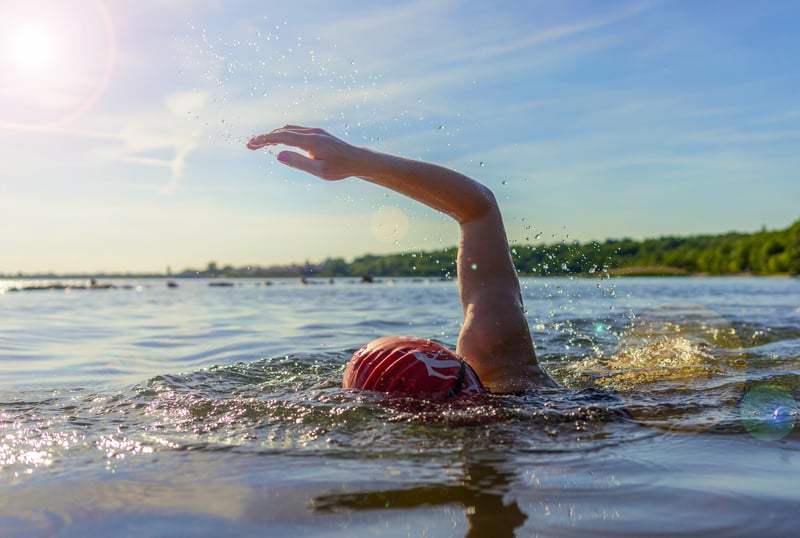Manténgase sano!

- Dennis Thompson
- Posted January 10, 2023
Swimmers Face a Little Known Danger: Fluid on the Lungs
The swimmer came to shore struggling to breathe and coughing up blood.
A keen competitive long-distance swimmer and triathlete, the woman was fit and healthy when she started a nighttime open water swim event.
But a couple weeks earlier, she'd had breathing difficulties during another open water swim that had forced her to abandon the event. She'd felt breathless for days after.
The woman, in her 50s, had fallen prey to what's becoming better known as a hazard associated with open water swimming -- fluid on the lungs, or pulmonary edema.
Open water swimming has become very popular, but mounting evidence points to a link between the activity and a condition called swimming-induced pulmonary edema (SIPE), according to Dr. James Oldman, lead author of a study published Jan. 9 in BMJ Case Reports.
Oldman is a cardiologist with Royal United Hospitals Bath NHS Foundation Trust in the U.K.
First reported in 1989, SIPE leaves swimmers struggling to draw breath as fluid collects in the air sacs of the lungs. It affects an estimated 1% to 2% of open water swimmers, but cases are likely to be underreported, Oldman and his colleagues wrote.
Older age, long distances, cold water, female gender, high blood pressure and heart disease are among the risk factors for SIPE, the researchers said. However, it often occurs even in those who are in good shape.
The water temperature was chilly for the woman's event, around 62 degrees Fahrenheit, but she was wearing a wetsuit, researchers noted. Nevertheless, by about 300 yards of swimming her symptoms had started.
She was rushed to a hospital, where a chest X-ray revealed pulmonary edema. Worse, the fluid had infiltrated the heart muscle, a condition called myocardial edema.
The woman was lucky, however. Her symptoms settled within two hours after arriving at the hospital, and she was discharged the next morning.
Recurrence of SIPE is common, and has been reported in 13% to 22% of scuba divers and swimmers -- suggesting that some people are predisposed to the condition, researchers said.
No one's sure what causes SIPE, but it's likely some combination of increased blood pressure in the lungs, higher blood flow during physical exertion, and cold weather causing blood vessels to constrict, researchers said.
The researchers advise people prone to SIPE to swim at a slower pace with other people in warmer water. To further minimize their risk, these swimmers should avoid tight-fitting wetsuits and shouldn't take non-steroidal anti-inflammatory drugs like ibuprofen.
Those experiencing symptoms for the first time should immediately stop swimming and get out of the water. Sit upright, and if symptoms persist call for medical assistance.
More information
The Mayo Clinic has more about pulmonary edema.
SOURCE: BMJ, news release, Jan. 9, 2022
